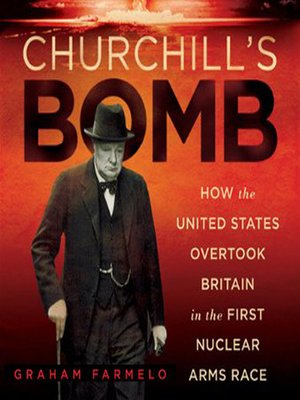Churchill's Bomb
audiobook (Unabridged) ∣ How the United States Overtook Britain in the First Nuclear Arms Race
By Graham Farmelo

Sign up to save your library
With an OverDrive account, you can save your favorite libraries for at-a-glance information about availability. Find out more about OverDrive accounts.
Find this title in Libby, the library reading app by OverDrive.



Search for a digital library with this title
Title found at these libraries:
| Loading... |
Perhaps no scientific development has shaped the courseof modern history as much as the harnessing of nuclear energy. Yet thetwentieth century might have turned out differently had greater influence overthis technology been exercised by Great Britain, whose scientists were at theforefront of research into nuclear weapons at the beginning of World War II.
As award-winning biographer and science writer GrahamFarmelo describes in Churchill's Bomb, the British set out toinvestigate the possibility of building nuclear weapons before their Americancolleagues. But when scientists in Britain first discovered a way to build anatomic bomb, Prime Minister Winston Churchill did not make the most of hiscountry's lead and was slow to realize the bomb's strategic implications. Thiswas odd—he prided himself on recognizing the military potential of new scienceand, in the 1920s and 1930s, had repeatedly pointed out that nuclear weaponswould likely be developed soon. In developing the bomb, however, hemarginalized some of his country's most brilliant scientists, choosing to relymainly on the counsel of his friend Frederick Lindemann, an Oxford physicistwith often wayward judgment. Churchill also failed to capitalize on FranklinRoosevelt's generous offer to work jointly on the bomb and ultimately cededBritain's initiative to the Americans, whose successful development anddeployment of the bomb placed the United States in a position of supreme powerat the dawn of the nuclear age. After the war, President Truman and hisadministration refused to acknowledge a secret cooperation agreement forged byChurchill and Roosevelt and froze Britain out of nuclear development, leavingBritain to make its own way. Dismayed, Churchill worked to restore therelationship. Churchill came to be terrified by the possibility ofthermonuclear war and emerged as a pioneer of détente in the early stages ofthe Cold War.
Contrasting Churchill's often inattentive leadership withFranklin Roosevelt's decisiveness, Churchill's Bomb reveals the secrethistory of the weapon that transformed modern geopolitics.






